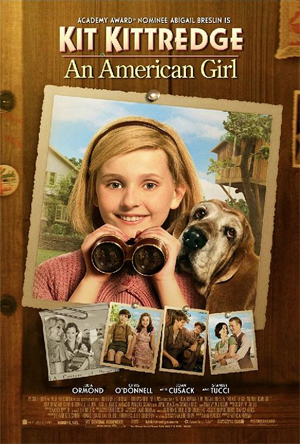Cassian Elwes, co-head of William Morris' independent film division since 1994, spoke at the Los Angeles Film Festival Wednesday on the topic of Is Independent Film Dead? 
The question may sound harsh in the light of recent box office smashes such as Juno, Little Miss Sunshine and Waitress but Mark Gill, former head of Warner Independent, one of the recent casualties of independent film's radically changing landscape, describes life in today's independent trenches in such terms as, "The world is falling apart in independent cinema." 
Elwes, who confesses to being a "glass half full" guy conceded that while the landscape is changing, he hardly foresees the death of independent filmmaking. "I foresee a rainbow on the horizon," he predicted. "I don't see that the sky is falling down, but that maybe it's lowering. I see a much stronger and healthier independent film scene."
A quick survey of the indie landscape: Picturehouse and Warner Independent - closed. (Picturehouse just released American Girl featuring Abigail Breslin and produced by Julia Roberts' Red Om Films and you may recall a little doc about Penguins that Warner Independent championed in recent memory - yeah! THAT Penguin movie.) New Line and Paramount Vantage are currently convulsing in their death throes. Soon to be no more. 
"For the past year great films have sold at very low prices at Sundance for lack of anyone competing with the two major buyers who are now Sony Pictures Classics and IFC Films," said Elwes. Indeed, the Wackness, which won the Sundance 2008 Audience Award was made for $6 million according to its writer-director Jonathan Levine, and sold for $2million to Sony. You don"t have to be a biz whiz to get that that's just not a sustainable business model.
"As soon as Pulp Fiction made $100M at the box office, another $100M on DVD and $30M on TV, that was when all the majors [studios] ran into the independent film business," recalled Elwes. "But this was never the business of independent films. $100Million profit is out of the ballpark. Independent film is $1-$2 Million profit - if you're lucky."
Elwes identified a dichotomy in the current state of independent filmmaking. On the one hand, he said, there's no lack of money out there to make independent films. On the other hand, he said, distribution is increasingly hard in the U.S. for independent film, even when the studios are in the game. Take Juno as an example.
The Studio Movie as "Indie"
Juno was marketed, by the studio, as an independent film. But Juno was developed in-studio and had the whole Print and Advertising marketing clout of the studio - to the tune of about $25Million, as much as for a standard major release - behind it ...from the get-go. The only thing "independent" about Juno was that it was branded as "indie."
"The world of independent film distribution is in a flux. My hope is that out of the ashes will come something better, something more truly independent, less studio development," said Elwes.
There's a formula to independent filmmaking, explained the veteran agent. That formula is that you go to a foreign sales agent and get estimations on the worth of your proposed film and attached cast. Then you go to a bank and get a loan based on that "low estimate" of the film's worth. "This is a real business plan," he said, "and gross sales often get to within 10-15% of the estimate."
Elwes pointed out that there's an upside to the weak US dollar for filmmakers: 1) It's now cheaper to shoot in the U.S. 2) The Euro is so strong, U.S. films are cheaper now to buy. He stopped short of saying that it's never been easier to get an independent film financed, but did volunteer that those films getting financed will get distribution - DVD domestically and theatrical internationally.
And what about digital downloads and streaming video and stuff? "I read recently that some 54,000 films a day are being downloaded on Apple's iTunes but when it gets to 5 million a day, that's when real revenue is coming in," said the agent. He referenced a model that IFC Films has begun using as a standard release plan for its films. They release theatrical, digital, pay-per-view, DVD, TV, VOD all on the same day. "Being available everywhere at the same time is how I see films being released in the near future," said Elwes.
And what about short form content in the digital film age? Elwes believes that, "As the internet/mobile phone business matures, I think you'll see a lot of filmmakers emerging that will be making ringtone films and other digital mobile content. As that business model matures, there will be a lot of revenue pouring out of that." The question that did not get asked/answered is Where in all of this does the agent find himself? Foresee ably only time will tell if they, too, become as redundant as the studio financed, marketed and distributed "indie" film.